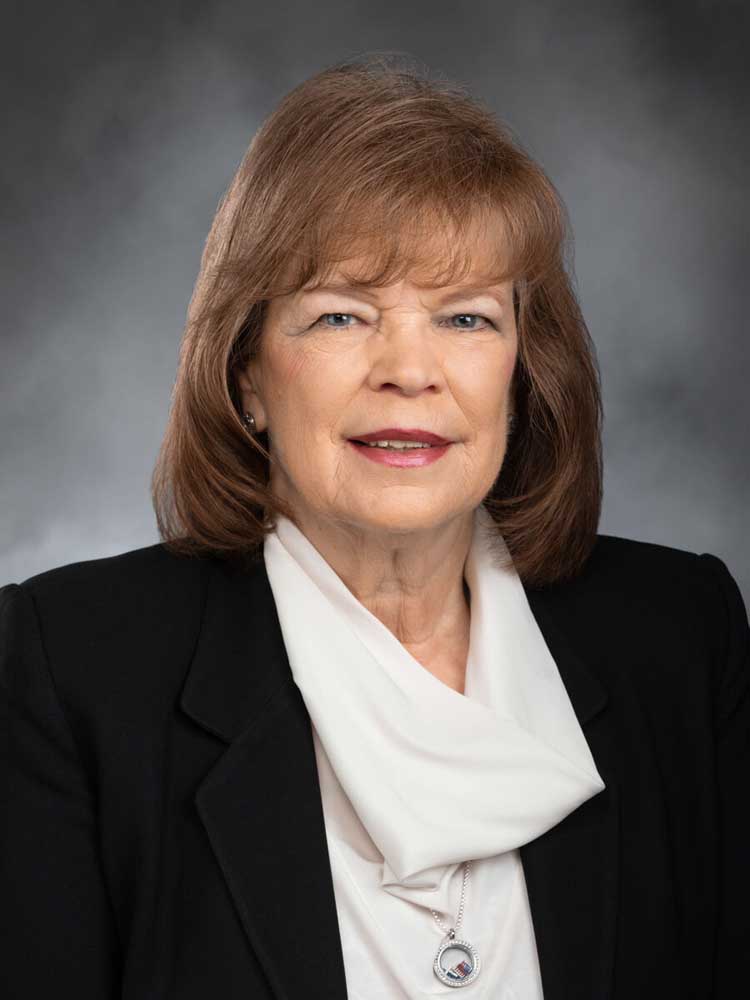Company’s stake in proposed Washington carbon credits unclear
Published 8:06 am Wednesday, October 26, 2022

- Sen. Judy Warnick
OLYMPIA — Six months after Washington Public Lands Commissioner Hilary Franz introduced Finite Carbon as the state’s partner in selling carbon credits, the terms of that partnership remain undisclosed.
Finite Carbon, owned by oil giant BP, calls itself the developer and manager of a plan to cancel logging on 10,000 acres in Western Washington to “offset” carbon emissions by companies. (No Pacific County land is being considered for this program at this time. The Department of Natural Resources has already set aside thousands of acres here as protected habitat.)
The plan was drawn up without the approval or knowledge of the Board of Natural Resources, a panel that purportedly sets timber policies for DNR.
The board’s vice chairman, Clallam County Commissioner Bill Peach, said last week he still doesn’t know Finite Carbon’s stake in the project. “That’s a big gap,” he said.
Based in Pennsylvania, Finite Carbon describes itself as North America’s “leading developer and supplier of forest carbon offsets.” Efforts to obtain comment from the company were unsuccessful.
BP, formerly known as British Petroleum, invested $5 million in Finite Carbon in 2019 and a year later bought a majority stake. Terms were not reported.
Franz, joined by a Finite Carbon executive, announced in April the plan to trade timber revenue revenue for revenue from companies seeking to fulfill pledges to fight climate change.
“Our partner in this effort is Finite Carbon. They’ve been working with us for over two years, a very long time,” Franz said.
Finite Carbon director of forest carbon origination Caitlin Guthrie said the company helps forest landowners make money for storing carbon.
“As project developer and manager, Finite Carbon has worked with the state to design an innovative and a creative improved forest-management plan,” she said.
Since then, DNR has fast-tracked the Finite Carbon plan, bypassing environmental and economic studies, as well as the Board of Natural Resources.
Details sparse
Besides not revealing Finite Carbon’s financial stake, DNR has not explained why the BP-owned company was picked as a partner to, as Franz said, “repurpose public lands for climate solutions.”
“DNR does not currently have a document that sets the expectations and obligations for DNR and Finite Carbon’s partnership,” DNR public disclosure officer Shane Martinez said in an email.
DNR spokeswoman Sarah Ford said Oct. 25 in an email the department has no financial obligation to Finite Carbon until the 10,000 acres are put on the carbon market.
Carbon Finite would then “receive a predetermined share of revenue generated for their work,” she said. Ford did not say what the share would be and did not respond to follow-up questions.
Legislators have questions
For months, Republican legislators have been seeking answers about the project, including how much DNR spent developing it and whether it contracted with Finite Carbon.
‘There are so any questions that have not been answered. It’s very disappointing we’re not hearing the true story about what’s going to happen.’
Moses Lake Sen. Judy Warnick
Top-ranking Republican on the Natural Resources Committee
“We have not gotten an answer, and it’s a source of some frustration,” Senate Minority Leader John Braun said. “DNR has not been forthcoming.”
He said he expected lawmakers to pick up the issue when the Legislature convenes for the 2023 session.
“I think there will be an opportunity to question Commissioner Franz in person,” said Braun, R-Centralia. “We’re not going to just walk away. It’s a big deal.”
DNR timber sales fund rural schools, counties, hospitals, ports, fire districts and other services. Some sawmill operators say they need state logs to keep running.
Moses Lake Sen. Judy Warnick, top-ranking Republican on the Natural Resources Committee, said she’s concerned that DNR hasn’t studied the impact to public services and businesses.
“There are so any questions that have not been answered,” she said. “It’s very disappointing we’re not hearing the true story about what’s going to happen.”
Still being worked out
Although cut out of any decision-making so far, the Board of Natural Resources has been briefed on the project. DNR staff said details were still being worked out.
“It hasn’t been determined yet whether Finite Carbon would lease directly themselves or whether it would be one of the many companies that have made commitments to being climate neutral by 2025, 2030,” said Duane Emmons, acting deputy supervisor of state uplands.
DNR could “theoretically” market the carbon credits, but it would be complicated, said senior policy adviser Csenka Favorini-Csorba.
“It’s unusual for entities to not go though a third-party like Finite Carbon because these things are quite complicated and they require the expertise that Finite Carbon has,” she said.
“We’ll be developing the lease terms and working with Finite Carbon to ensure we have everything to list the project with the carbon registry,” Favorini-Csorba said.
Peach, the Clallam County commissioner, said that if DNR needs help marketing carbon credits, it should invite other applicants. “I’d like to see competitive bidding,” he said.
BP distinguished itself and won praise from some Democratic lawmakers in 2021 by supporting Washington’s Climate Commitment Act, the cap-and-trade law that will require manufacturers to bid for the right to emit carbon.
BP has pledged to be a “net-zero company by 2050.” Other companies have made the same or similar promises and may need to buy credits generated by conserving forests.
According to DNR, “significant” companies are interested in buying the credits. The trees that will be locked up are 40 to 120 years old and were slated to be harvest.
Carbon credits currently yield a fraction of the revenue of timber sales. Public services will lose $150 million and the wood-products industry will lose $500 million in economic activity, the American Forest Resource Council, a timber industry group, estimated.
DNR claimed that conserving the timberland will be like subtracting carbon emissions from a car that traveled 2 billion miles.





